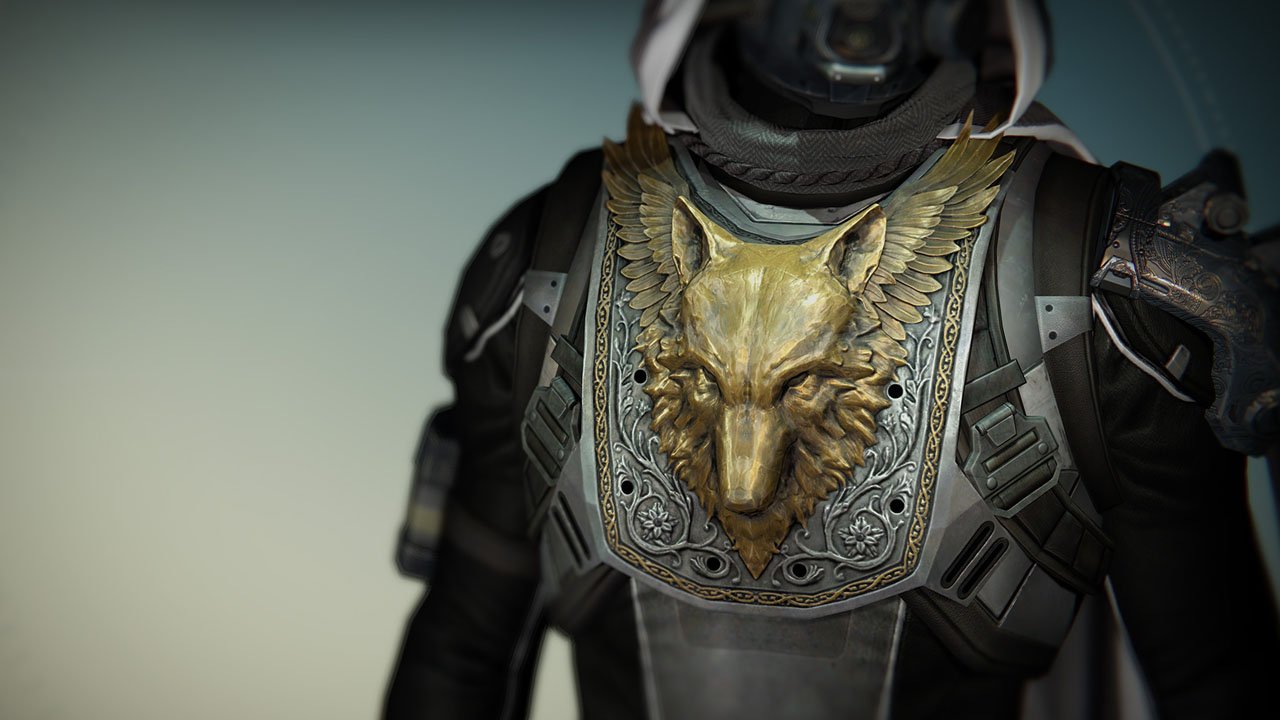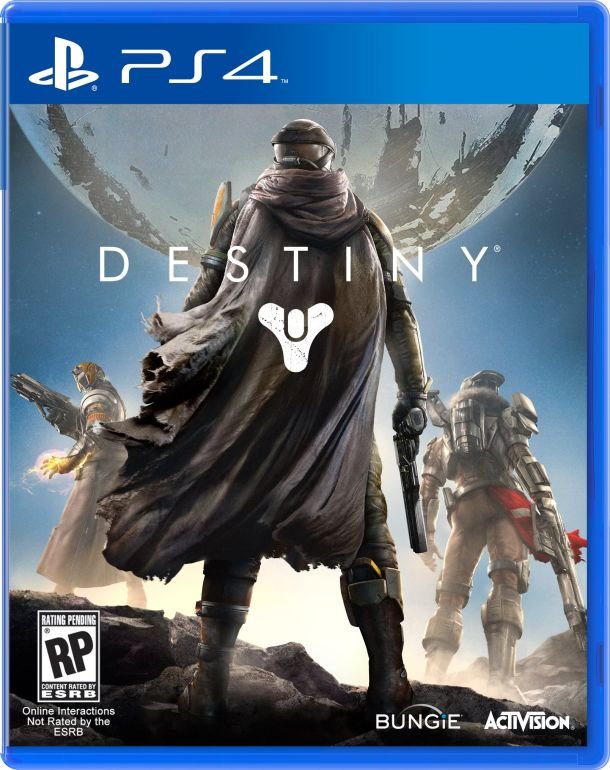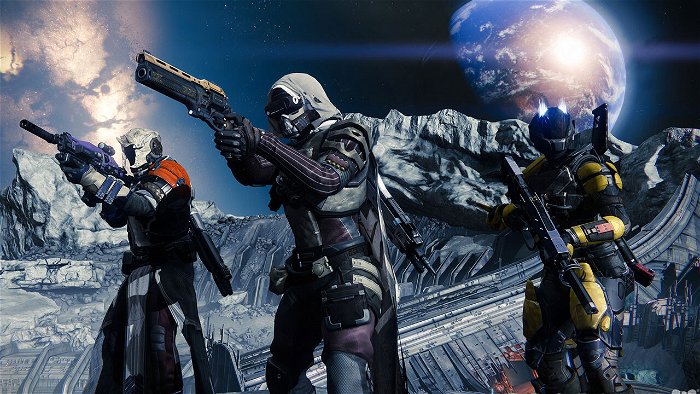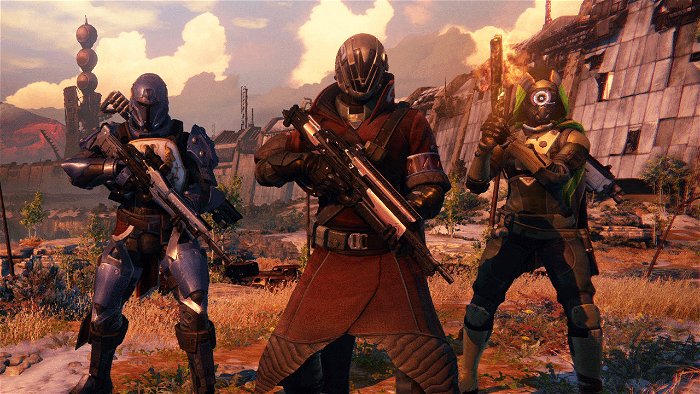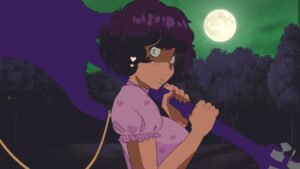Like Watch_Dogs, Destiny has a lot to live up to. It was another of the early titles that many pinned their hopes on as a game that would define—perhaps even irrevocably change—the next generation of gaming. Well, Watch_Dogs didn’t do that job, and, to be honest, Destiny isn’t going to either. But just because a game doesn’t cure cancer, raise the dead and turn communists into card-carrying democrats that love cheeseburgers and Levi’s blue jeans, doesn’t mean that it’s a terrible game. Destiny is, in fact, a pretty good game trying some old tricks in new ways. It’s just not going to change your life.
Diablo Meets Halo
Destiny is not quite like any FPS that’s come before it. It’s trying to do something new and that experiment, while promising and largely successful, is not a work of timeless brilliance. It’s a single player FPS like Halo, it’s a co-op FPS like Borderlands, it’s a PvP game like Call of Duty and it’s also a loot treadmill like Diablo. It is all these things, integrated into your one, singular character, and it manages the impressive trick of managing to get all these parts to work together, just not superbly. At least, not yet.
“..what they don’t tell you is that treating this game as a single player campaign—while technically feasible—is the weakest aspect of the game.”
Let’s get the bad news out of the way first. Destiny is, at its heart, an online, social experience. So while it’s been pretty well documented that you need an online connection to play the game, even in single player, what they don’t tell you is that treating this game as a single player campaign—while technically feasible—is the weakest aspect of the game. Like Borderlands, a feeling of repetition can set in quickly when playing alone. Missions are essentially fighting down through a dungeon, deploying the Peter Dinklage voiced Ghost, and fighting waves of enemies or a boss. And, like Borderlands, this routine quickly feels grind-y when there are no team tactics, strategy, blame games, and all the other extra layers of fun and nuance that come from playing with others, especially actual friends and other acquaintances.
Played as a co-op or social game with a loot treadmill in your future, Destiny shows more of its true self. The game is networked so that no matter what you do, you’re playing through certain common areas with other people. Story missions can be completed solo, but can also be played with “Fire teams” of three people, while “Strikes,” which are essentially instanced mini-raid/dungeons, will use a matchmaking service if you’re not already in a group, and pair you with two other random players. Playing with others changes the dynamic of the game, and there are still future events, like a proper raid entitled “Vault of Glass” that require teams of six people to battle for the best loot in the game.
That’s not to say that Destiny’s social experience is perfectly conceived. In fact, there are some odd omissions. The “Tower,” which is where the game’s vendors are placed for getting new gear or collecting quest rewards, is supposed to be a social hub, but players can’t actually communicate with each other, except through gestures like dancing and pointing. Voice chat does exist, but it’s limited primarily to fire teams, and even then, if members of the fire team are on a party chat channel, they automatically exclude anyone who isn’t. Bungie, it seems, wants players to feel like there are people around, but doesn’t necessarily encourage actual communication except among friends.
The competitive multiplayer/Player vs. Player is probably the most satisfying and polished aspect of the Destiny experience right now, feeling the most “feature complete.” Different modes like Control, Rumble and others all mimic domination, Team Death Match and Death Match Free-For-Alls in other games, but with that special Bungie touch. Bungie has always shown a talent for level design in a competitive setting and Destiny affirms they still know what they are doing.
Destiny is an odd game, but it’s one with a solid foundation, and the superb FPS dynamics Bungie is known for. It’s hybrid game design however, feels a bit undeveloped and could use more tweaking, although what’s there is a good start with a compelling loot system, incredibly robust and easy to use party systems, a co-op/PvP system that some manages to coexist peaceably, and long, long story that Bungie is itching to tell. What remains to be seen is whether they’ll get the chance, but if they build on the groundwork they’ve laid out for Destiny then Destiny II could be something very special. As it is, this is a fun, oddly designed game with some problems, but some potential in its bones.
To read Wayne’s extended review of Destiny, pick up the Oct issue of CGM.
